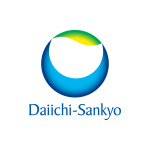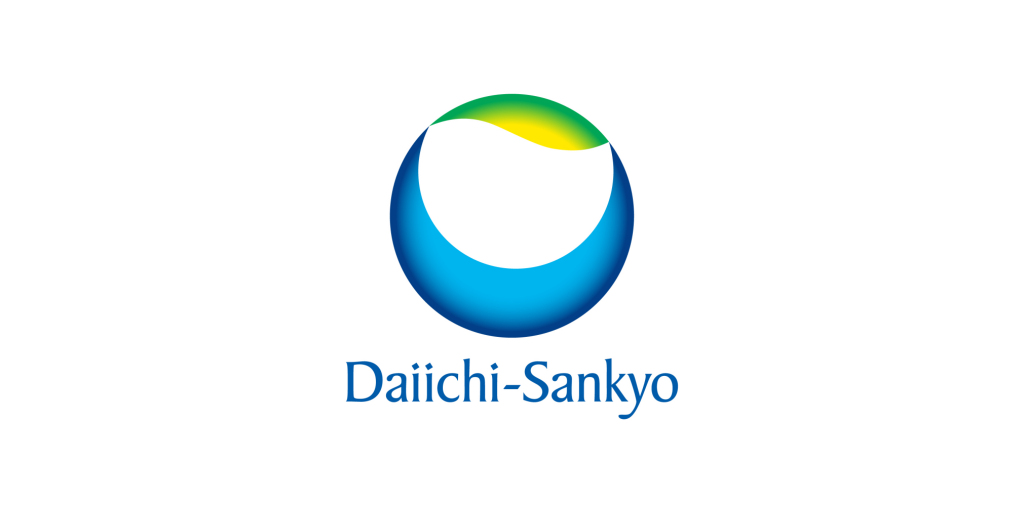- Daiichi Sankyo and AstraZeneca’s datopotamab deruxtecan plus durvalumab with or without chemotherapy demonstrated objective response rates of 77% and 50% and disease control rates of 92% and 93%, respectively
- Three ongoing pivotal trials are evaluating datopotamab deruxtecan and immune checkpoint inhibitor combinations in first-line advanced non-small cell lung cancer
TOKYO & MUNICH & BASKING RIDGE, N.J.–(BUSINESS WIRE)–Initial results from the TROPION-Lung04 phase 1b trial showed that datopotamab deruxtecan (Dato-DXd) in combination with durvalumab, an anti-PD-L1 therapy, with or without carboplatin demonstrated encouraging responses and no new safety signals in patients with previously untreated advanced or metastatic non-small cell lung cancer (NSCLC) without actionable genomic alterations. These data were presented today during a late-breaking oral presentation (OA05.06) at the IASLC 2023 World Conference on Lung Cancer hosted by the International Association for the Study of Lung Cancer (#WCLC23).
Datopotamab deruxtecan is a specifically engineered TROP2 directed DXd antibody drug conjugate (ADC) being jointly developed by Daiichi Sankyo (TSE: 4568) and AstraZeneca (LSE/STO/Nasdaq: AZN).
More than one million people worldwide are diagnosed with advanced NSCLC each year.1,2 While first-line treatment with immune checkpoint inhibitors with or without chemotherapy has improved outcomes for patients with NSCLC without actionable genomic alterations, like EGFR or ALK, most patients eventually experience disease progression.3,4,5 TROP2 is a protein broadly expressed in a large majority of NSCLC tumors.6 There are currently no TROP2 directed ADCs approved for the treatment of patients with lung cancer.7,8
In previously untreated patients, datopotamab deruxtecan plus durvalumab (doublet; n=14) demonstrated an objective response rate (ORR) of 50.0% (95% confidence interval [CI]: 23.0-77.0), including seven partial responses (PR) and a disease control rate (DCR) of 92.9% (95% CI: 66.1-99.8). Response rates were higher in patients receiving datopotamab deruxtecan plus durvalumab and carboplatin (triplet; n=13) which demonstrated an ORR of 76.9% (95% CI: 46.2-95.0), including 10 PRs and a DCR of 92.3% (95% CI: 64.0-99.8). Responses were observed across PD-L1 expression levels.
“Most patients with advanced non-small cell lung cancer experience disease progression after initial treatment, underscoring the need for more effective first-line treatment options,†said Saiama Waqar, MD, Siteman Cancer Center, Washington University School of Medicine, St. Louis, Missouri, and investigator in the trial. “The TROPION-Lung04 results offer preliminary evidence for the efficacy of datopotamab deruxtecan in combination with durvalumab and chemotherapy in first-line advanced non-small cell lung cancer with no new safety signals. We eagerly await enrollment and results from the phase 3 program evaluating various datopotamab deruxtecan and immune checkpoint inhibitor combinations in this setting.â€
In both previously treated and untreated patients, the safety profiles of datopotamab deruxtecan and durvalumab with and without carboplatin were consistent with other clinical trials and with the known safety profile of each agent. Grade 3 or greater treatment-emergent adverse events (TEAEs) occurred in 42.1% of patients receiving doublet therapy and 71.4% of patients receiving triplet therapy. In patients receiving triplet therapy, the most common grade 3 or greater TEAEs (occurring in more than 15% of patients) were anemia (36%) and thrombocytopenia (21%). No grade 3 or higher TEAE occurred in more than 15% of patients receiving doublet therapy. Across treatment cohorts, there were four interstitial lung disease (ILD) events adjudicated as drug-related by an independent committee including one grade 1 event, two grade 2 events and one grade 4 event. No grade 5 ILD events were observed.
“These early trial results further demonstrate the potential for datopotamab deruxtecan to enhance response to immune checkpoint inhibitors in patients with advanced non-small cell lung cancer and without actionable genomic alterations,†said Mark Rutstein, MD, Global Head, Oncology Clinical Development, Daiichi Sankyo. “We look forward to continuing to evaluate this promising TROP2 directed antibody drug conjugate in multiple ongoing phase 3 trials to address what has long been an unmet need for the lung cancer community across treatment settings.â€
“Following the positive high-level results of TROPION-Lung01, these initial TROPION-Lung04 results in the first-line setting reinforce our confidence in datopotamab deruxtecan as a potential treatment option for patients with advanced non-small cell lung cancer,†said Cristian Massacesi, Chief Medical Officer and Oncology Chief Development Officer, AstraZeneca. “Through our robust clinical program we are eager to continue evaluating this TROP2 directed antibody drug conjugate in lung cancer across treatment settings, alone and in novel combinations.â€
In the doublet cohort, 73.7% (n=14 of 19) of patients were previously untreated. In the triplet cohort, 92.9% (n=13 of 14) of patients were previously untreated. Both the doublet and triplet cohorts included patients with PD-L1 expression levels ranging from less than 1% (n=6, 6), 1% to 49% (n=6, 3) and 50% or greater (n=7, 5), respectively. As of the March 6, 2023 data cut-off, median study duration was six months for both cohorts and treatment was ongoing in 31.6% and 50.0% of patients in the doublet and triplet cohorts, respectively.
Summary of TROPION-Lung04 Efficacy Results
|
Responses in Previously Untreated Patients |
||
|
 |
Doublet Therapy (Cohort 2; n=14) |
Triplet Therapy (Cohort 4; n=13) |
|
ORR (confirmed and pending), %i (95% CI) |
50.0% (23.0-77.0; n=7) |
76.9% (46.2-95.0; n=10) |
|
CR, % |
0% |
0% |
|
PR, % |
50.0% (n=7) |
76.9% (n=10) ii |
|
SD, % |
42.9% (n=6) |
15.4% (n=2) |
|
PD, % |
7.1% (n=1) |
7.7% (n=1) |
|
DCR, % iii |
92.9% (66.1-99.8; n=13) |
92.3% (64.0-99.8; n=12) |
|
CI, confidence interval; CR, complete response; DCR, disease control rate; ORR, objective response rate; PR, partial response; PD, progressive disease; SD, stable disease |
||
| i ORR is CR + PR | ||
| ii One of the 10 partial responses in Cohort 4 was confirmed after data cut-off | ||
| iiiDCR is best overall response of confirmed CR + confirmed PR + SD | ||
Daiichi Sankyo and AstraZeneca have three phase 3 trials evaluating datopotamab deruxtecan-based combinations as potential first-line treatment options for patients with advanced or metastatic NSCLC without actionable genomic alterations compared to the respective standard of care for the patient population of each study. TROPION-Lung07 is evaluating datopotamab deruxtecan plus pembrolizumab with or without chemotherapy in patients with non-squamous disease and PD-L1 expression less than 50%. TROPION-Lung08 is evaluating datopotamab deruxtecan plus pembrolizumab in patients with PD-L1 expression of 50% or greater. AVANZAR is evaluating datopotamab deruxtecan plus durvalumab and carboplatin in patients regardless of PD-L1 expression or tumor histology.
About TROPION-Lung04
TROPION-Lung04 is an ongoing global, open-label, 11-cohort phase 1b trial evaluating the efficacy and safety of datopotamab deruxtecan (4 mg/kg or 6 mg/kg) in combination with immunotherapy (durvalumab, AZD2936 or MEDI5752) with or without up to four cycles of carboplatin in patients with advanced or metastatic NSCLC without actionable genomic alterations. Patients enrolled in the cohorts evaluating durvalumab were previously untreated or had received one or fewer lines of systemic chemotherapy without concomitant immunotherapy. The primary endpoints of TROPION-Lung04 are safety and tolerability. Secondary endpoints include ORR, DCR, duration of response and progression-free survival as assessed by investigator. TROPION-Lung04 will enroll approximately 230 patients globally.
About Non-Small Cell Lung Cancer
More than one million people worldwide are diagnosed with advanced NSCLC each year.1,2 While targeted therapies and immune checkpoint inhibitors have improved patient outcomes, advanced NSCLC has a poor prognosis and is associated with worsening outcomes after each line of subsequent therapy.3,4,5
Most patients with NSCLC have tumors that do not express a known actionable genomic alteration (e.g., EGFR, ALK, ROS1, NTRK, BRAF, RET or MET).9,10,11 The current first-line standard of care for these patients is immune checkpoint inhibitors with or without platinum-based chemotherapy. Approximately 40% to 60% of tumors will not respond to this initial treatment and while these therapies may improve survival for patients whose tumors do respond, most will experience disease progression.5,7
TROP2, a transmembrane glycoprotein, is broadly expressed in a large majority of NSCLC tumors.6 There are currently no TROP2 directed ADCs approved for the treatment of lung cancer.
About the Daiichi Sankyo and AstraZeneca Collaboration
Daiichi Sankyo and AstraZeneca entered into a global collaboration to jointly develop and commercialize ENHERTU in March 2019 and datopotamab deruxtecan in July 2020, except in Japan where Daiichi Sankyo maintains exclusive rights for each ADC. Daiichi Sankyo is responsible for the manufacturing and supply of ENHERTU and datopotamab deruxtecan.
About Datopotamab Deruxtecan (Dato-DXd)
Datopotamab deruxtecan (Dato-DXd) is an investigational TROP2 directed ADC. Designed using Daiichi Sankyo’s proprietary DXd ADC technology, datopotamab deruxtecan is one of the lead ADCs in the oncology pipeline of Daiichi Sankyo, and one of the most advanced programs in AstraZeneca’s ADC scientific platform. Datopotamab deruxtecan is comprised of a humanized anti-TROP2 IgG1 monoclonal antibody, developed in collaboration with Sapporo Medical University, attached to a number of topoisomerase I inhibitor payloads (an exatecan derivative, DXd) via tetrapeptide-based cleavable linkers.
A comprehensive development program called TROPION is underway globally with more than 12 trials evaluating the efficacy and safety of datopotamab deruxtecan across multiple tumors, including NSCLC, triple negative breast cancer and hormone receptor positive, HER2 negative breast cancer. Beyond the TROPION program, datopotamab deruxtecan also is being evaluated in novel combinations in several ongoing trials.
In NSCLC, the TROPION-Lung07, TROPION-Lung08 and AVANZAR phase 3 trials are evaluating datopotamab deruxtecan and immune checkpoint inhibitor combinations as potential first-line treatment options for patients with advanced or metastatic disease, a strategy informed by the results of two early trials. AstraZeneca is also researching a potential diagnostic test to help identify patients most likely to benefit from treatment with datopotamab deruxtecan.
About the DXd ADC Portfolio of Daiichi Sankyo
The DXd ADC portfolio of Daiichi Sankyo currently consists of six ADCs in clinical development across multiple types of cancer. ENHERTU, a HER2 directed ADC, and datopotamab deruxtecan (Dato-DXd), a TROP2 directed ADC, are being jointly developed and commercialized globally with AstraZeneca. Four additional Daiichi Sankyo DXd ADCs include patritumab deruxtecan (HER3-DXd), a HER3 directed ADC, ifinatamab deruxtecan (I-DXd; DS-7300), a B7-H3 directed ADC, raludotatug deruxtecan (R-DXd; DS-6000), a CDH6 directed ADC, and DS-3939, a TA-MUC1 directed ADC.
Designed using Daiichi Sankyo’s proprietary DXd ADC technology to target and deliver a cytotoxic payload inside cancer cells that express a specific cell surface antigen, each ADC consists of a monoclonal antibody attached to a number of topoisomerase I inhibitor payloads (an exatecan derivative, DXd) via tetrapeptide-based cleavable linkers.
Datopotamab deruxtecan, ifinatamab deruxtecan, patritumab deruxtecan, raludotatug deruxtecan and DS-3939 are investigational medicines that have not been approved for any indication in any country. Safety and efficacy have not been established.
About Daiichi Sankyo
Daiichi Sankyo is an innovative global healthcare company contributing to the sustainable development of society that discovers, develops and delivers new standards of care to enrich the quality of life around the world. With more than 120 years of experience, Daiichi Sankyo leverages its world-class science and technology to create new modalities and innovative medicines for people with cancer, cardiovascular and other diseases with high unmet medical need. For more information, please visit www.daiichisankyo.com.
References
1 Siegel R, et al. CA Cancer J Clin. 2021;71:7-33.
2 World Health Organization. International Agency for Research on Cancer. Lung Fact Sheet. Accessed September 2023.
3 Shields MD, et al. Am Soc Clin Oncol Educ Book. 2021;41:1-23.
4 Walsh RJ, et al. Ther Adv Med Oncol. 2020;12:1758835920937902.
5 Paz-Ares L, et al. J Thorac Oncol. 2020 Oct;15(10):1657-1669.
6 Mito R, et al. Pathol Int. 2020;70(5):287-294.
7 RodrÃguez-Abreau D et al. Ann Onc. 2021 Jul;32(7): 881-895.
8 American Cancer Society. Targeted Drug Therapy for Non-Small Cell Lung Cancer. Accessed September 2023.
9 Chen R, et al. J Hematol Oncol. 2020;13(1):58.
10 Majeed U, et al. J Hematol Oncol. 2021;14(1):108.
11 Adib E, et al. Genome Med. 2022;14(1):39.
Contacts
Media Contacts:
Global/US:
Jennifer Brennan
Daiichi Sankyo, Inc.
[email protected]
+1 908 900 3183 (mobile)
Japan:
Koji Ogiwara
Daiichi Sankyo Co., Ltd.
[email protected]
+81 3 6225 1126 (office)
Investor Relations Contact:
[email protected]








